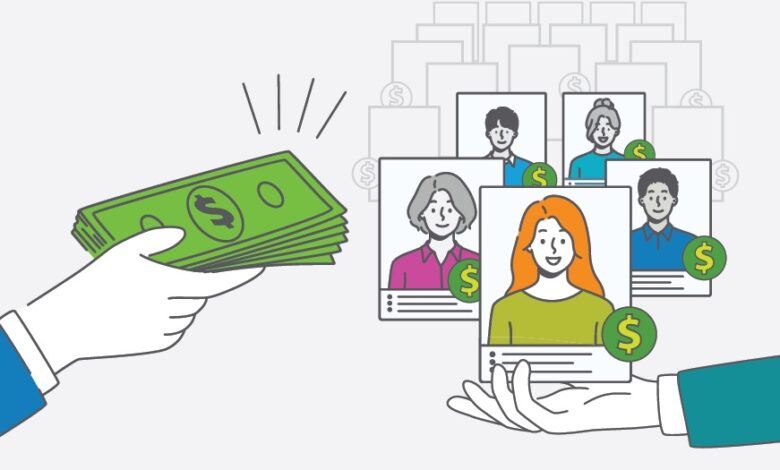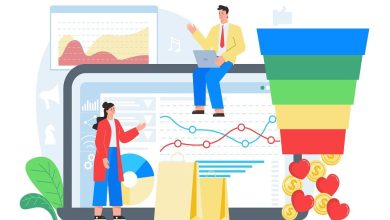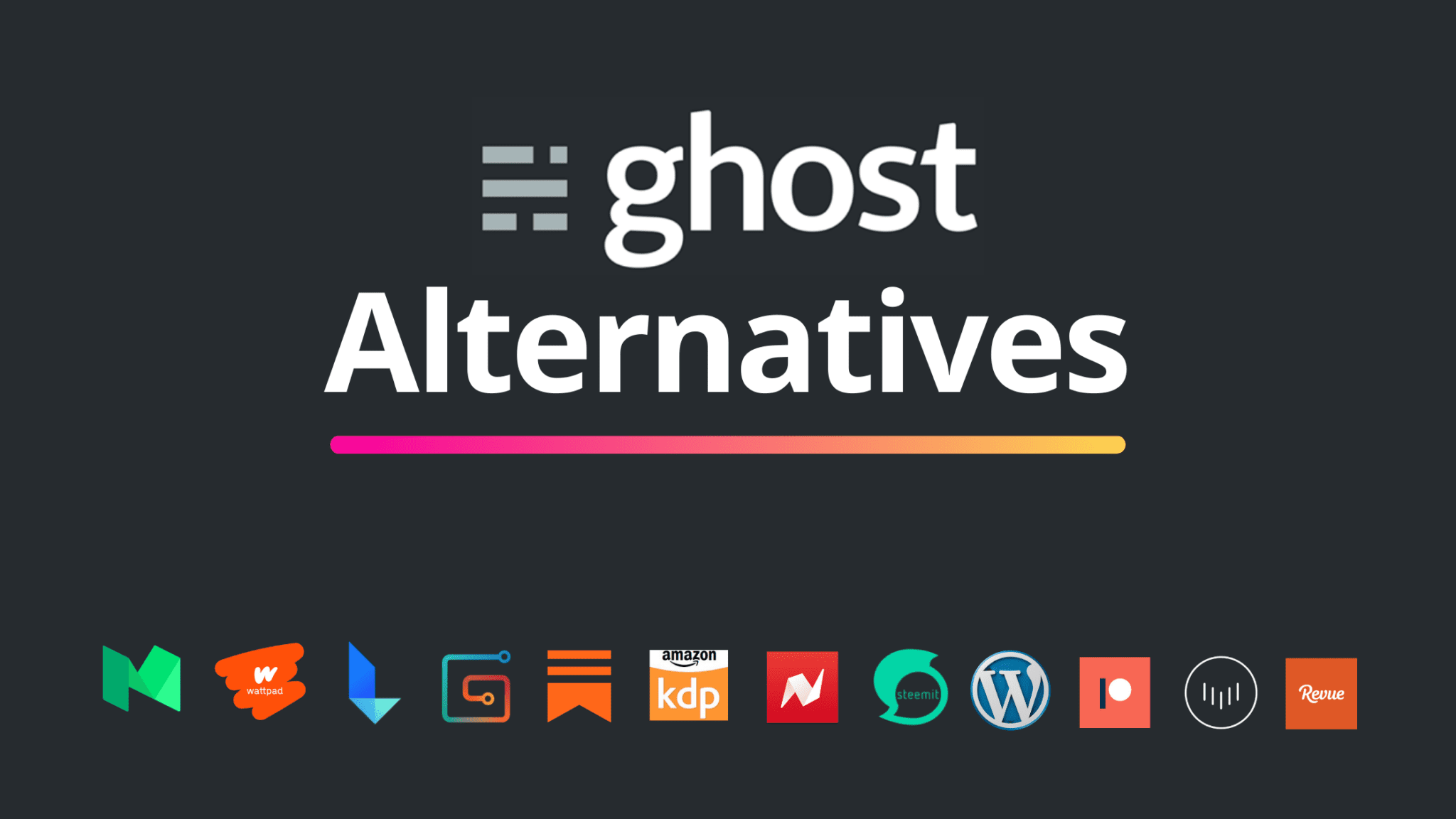How Data Brokers Profit from Your Data

How Data Brokers Profit from Your Data (A Guide). Do you ever wonder why internet platforms and advertisers appear to know more personal information about you than you ever wanted to share?
Data brokers are somewhat to blame because they gather user data, frequently without the individuals’ consent, in order to sell to other businesses.
Although data broking is not unlawful in and of itself, there are some privacy and security issues due to the lack of regulation and transparency. Let’s examine data brokers’ operations in more detail, the kinds of data they gather, and how they make money.
What is a Data Broker?
Data can be mined and processed for money in the same way that gemstones are now.
Data brokers, or businesses that gather, package, and sell your personal information to other businesses, are one example.
Through the services they provide, the technologies they employ, or the businesses they partner with, data brokers can directly or indirectly acquire data.
Your personal information, as well as your consumption habits and preferences, are all included in their data.
How does data Brokerage Work?
The majority of data brokers clean up the information they gather from various sources and offer it in the form of pre-packaged consumer bundles.
Depending on the interests of its customers, these bundles are relevant to particular consumer groups or target markets.
A database of PC gamers’ demographic data, for instance, may be sold to a company that creates video games.
Data brokers are permitted to licence the data or otherwise share it with third parties in addition to selling it.
On data-sharing platforms, where hundreds or thousands of other businesses contribute data, some brokers promote their datasets.
The act of trading data is not in and of itself unlawful, even though the industry’s activities have many implications for security and privacy.
Data brokers conduct the majority of their business covertly, therefore their operations are usually unrecorded and the sector as a whole is uncontrolled.
How Do Data Brokers Profit From Your Data?
Data brokers generate income by packaging the data they have gathered into packages that businesses may utilise for product or service design or marketing.
Data brokers provide licences to other businesses rather than “selling” the data in the conventional sense.
The broker still retains ownership of the data or intellectual property via licencing, but he or she grants permission for its usage and commercialization.
For the data they sell, data brokers typically establish their prices.
The cost of that particular data package increases with how sensitive and in-depth the information is.
The same holds true for increased demand and increased levels of difficulty in obtaining the data, both of which result in increased prices.
Types of Data Brokers
Similar to any other industry, the data brokerage sector is divided into various types of brokers.
There are two general categories into which the pool of data brokers can be divided:
Primary Brokers
Primary data brokers either collect information directly from the websites and services they own or indirectly from businesses that do the same.
Google, Facebook, Twitter, eBay, and other websites that collect data from users directly are examples of primary data brokers.
Secondary Brokers
Additionally, there are secondary data brokers, who typically rely on other businesses that have already gathered the data.
Primary brokers may sell them processed data.
They might also employ specialised software to “scrape” information from websites like social media and others in order to sell it on the open market.
Types of Specialized Data Brokers
There are several nuances to the data broking market that have not yet been completely explored.
Some only work in niche markets where consumer data is crucial.
The following are a few instances of these specialist data brokers:
People Search Brokers.
Data brokers who specialise in gathering and exchanging personal information about people online are known as people search brokers.
These websites provide you the option to look up certain people’s information (much like a directory), but it includes more than just their contact details.
Spokeo, BeenVerified, and PeekYou are a few examples of persons search brokers.
On other people-search websites, like TruePeople, the results are provided without charge.
Despite this, you may want to see whether you are on these websites and request that your data be deleted if the website provides an opt-out option.
Consider this procedure for removing oneself from TruePeople searches.
Marketing and Advertising Brokers
These brokers specialise in gathering information on customer expenditure and categorising it into so-called “consumer categories.”
They can create a wide range of consumer groups that their clients can use to target advertising by working with the alphabet soup of data.
Datalogix, owned by Oracle and Acxiom, is one of the biggest and most well-known data brokers on the planet.
According to reports, Datalogix has information on more than 700 million people worldwide and over 3,000 different consumer categories.
Personal Health Brokers
Personal health brokers are experts at gathering data on your health from pharmacies or online searches.
Their goal is to identify any medical issues you could have and the medications you use.
Health insurance providers and pharmaceutical firms are among their clients.
Financial Information brokers
Brokers of financial information collect data that can be used to determine your credit score or risk of loan default.
They also support identification verification and transaction tracking with other businesses.
Banks, mortgage lenders, and other financial entities that frequently check people’s backgrounds are some of their clientele.
What type of Data Do Data brokers Collect?
Individuals provide data brokers with a significant amount of information.
The data points might be anything from the most fundamental to the most delicate and consumer-specific.
Your name, age, gender, residence, level of education, and line of work are some of the more fundamental pieces of information.
More private information like your social security number, personal belongings, annual salary, etc. may also be included in the dossier.
Consumer-related data or data that tries to identify your buying behaviour is also of interest to data brokers.
Let’s imagine, for illustration purposes, that you frequently binge-watch television programmes on Netflix.
The genre of shows you enjoy playing the most or your favourite shows may be compiled by a data broker.
Along with the data of other movie buffs, they will encode this information into a database.
They might also inquire about the products you regularly buy, such as the toothpaste you use or the fast food restaurants you frequent.
Even though they are completely unimportant, these little tidbits about your life add up to more comprehensive consumer data.
How Do Data Brokers Get the Information?
Using Data Brokers to Gather Information Image by Joshua Soriano
When it comes to data acquisition, data brokers are among the most creative businesses in the world.
The majority of data brokers either have connections to data sources or run their own data collection services, so they don’t have to put in a lot of extra effort to gather data in the first place.
However, they employ a few common techniques to gather data, including:
Scraping
Information is gathered from internet sources including websites and databases by data scraping, also known as web scraping.
It’s one of the most popular methods used by websites to collect information from internet users, and even the proprietors of websites use it to research their audience.
To quickly obtain the data they want from clients, the majority of brokers utilise specialised software known as “scraper bots.”
In order to retrieve embedded data based on predetermined criteria, scraper bots analyse a web page’s HTML code.
These bots are typically used by businesses to collect data from e-commerce, social media, and mobile apps.
Collecting Data
Companies that primarily collect data fall under a separate category within the data economy than those that do not.
As a result, technically speaking, they are not data brokers.
However, other businesses, including Facebook, Google, and YouTube, don’t only gather data; they also sell it.
They are data brokers in the true sense of the word, even though they might never say it.
The data they require is easily accessible to businesses like the ones we’ve highlighted.
In order to use a service or gain access to a platform, users essentially surrender part of their personal information at the door.
Insights into users’ preferences and spending habits are provided by the data they gather.
Even while sign-up papers provide the majority of the demographic data, they are frequently insufficient.
To obtain specialised data, data brokers frequently have to use additional strategies.
For instance, by following the “breadcrumbs” that you leave behind on websites in the form of cookies and scripts.
They may also use online surveys to get information from you about your preferences.
Buying Data
When businesses don’t collect the data themselves or by scraping it off the internet, they purchase it from businesses that do.
But in practise, it would be extremely challenging to determine what kinds and to what extent data are being sold.
Additionally, it is incredibly difficult to determine which businesses take part in the trade.
The fact that the data is transferred from one company to another does not alter even when the data’s format or form does.
Where Does the Data Come From?
Data brokers now have many more ways to obtain personal information because to the digital era and the development of sophisticated tracking technologies.
Large pools of data are left unsecured and open to data broker exploitation due to the absence of regulation on data broking operations.
The following are some examples of “data pools” that data brokers use:
Shopping Records
Retailers are likely the ones who cherish your data the most out of all the groups of websites that track your online behaviour.
Their entire business strategy is focused on encouraging customers to purchase goods from their store.
They need to know what you want in order to do it.
They do this by monitoring your site search phrases and receipts.
In other words, the site practically keeps track of everything you do.
Loyalty cards are frequently promoted by retailers as a way for customers to receive discounts, but unknowingly, these cards are also used by retailers to monitor your purchasing behaviour.
The loyalty cards have software that keeps track of all of your purchases in a database.
In order to improve the likelihood that you’ll make a purchase, the corporation can utilise the information to send you targeted advertisements.
Over 1,400 retailers are reportedly selling customer information to data brokers through the use of loyalty cards.
In other words, the majority of the stores you frequent that provide loyalty cards have probably sold your personal information to third parties.
And there’s a good probability that you joined up for the programme without realising that your data will be tracked.
Public Records
The vast bulk of the data that data brokers use comes from legally accessible sources.
Marriage records, criminal histories, voter registration records, demographic census data, and histories of property ownership and sales are all included in this public information.
Even some data brokers specialise in gathering data on voters.
Cookies are used by websites like CampaignGrid and ProPublica to keep tabs on the political affiliations and activities of their visitors.
They either utilise the information to produce targeted political ads online or they give it to targeting companies that work with political organisations.
Social media
Data brokers are particularly eager to purchase data from social networking websites since they include a wealth of personal information.
Most often, they gather data from websites like Facebook, TikTok, and YouTube using scraper bots and other specialised software.
The majority of these pages include followers’ posts along with their full names, phone numbers, addresses, and locations.
Data brokers have little motivation to put an end to the practise of scraping social networking websites because it is not against the law.
Therefore, despite the fact that social media platforms claim to forbid scraping, nothing meaningful has changed.
Scraper bots have been known to recover content that you have either removed or kept private from your profile.
Let’s take the humiliating beach photo you shared on Facebook and then took down as an example.
The use of scraper bots to obtain private data is not only strictly forbidden, but it is also not feasible.
Browsing history
Your internet browser history is filled with details about your thought processes, interests, and pastimes.
All of them are extremely private, making them an useful source of data for data brokers.
Because they have direct access to customers, data brokers who directly run search engines have an easier time gathering this kind of information.
On the other hand, search engines’ whole business model depends on the initial acquisition and analysis of user data.
They rarely provide an opt-out option since they utilise the data to fill your feed with content and advertisements based on your preferences.
Because of this, the majority of people just aren’t aware that they are being followed.
Use of a decentralised web browser with end-to-end encryption and unique features like tracking blockers is crucial for this reason.
Examples of the so-called decentralised browsers include the greatest browsers for privacy, such as Opera, Brave, Safari, and Tor.
Smart Home Devices
Nowadays, internet of things (IoT)-enabled smart devices are all the rage.
However, they also provide data collection-related security vulnerabilities.
Because they are all internet-connected devices, so-called “smart” cameras, speakers, watches, TVs, and the like are the ideal platforms for tracking software.
The dangers of IoT devices were discovered by researchers from Imperial College London and Northeastern University.
The researchers studied 81 various smart devices, such as TVs, computers, phones, smart speakers, and so forth.
Out of the 81 devices, 72 shared data with parties unaffiliated with the maker, they discovered.
Along with personal data, the devices also shared IP addresses, device details, configurations, and location information.
The gadgets were sending data in real-time, sometimes once per minute, according to the researchers.
They also learned that the data sent was in plaintext, unencrypted format, leaving them open to assault.
This study serves as the ideal demonstration of how the majority of IoT devices track your data.
Since entertainment devices make up the majority of IoT devices in homes, these gadgets keep track of the kind of content you watch and when you watch it.
Who Benefits from the Data?
Who gains from all of this data collection given that we are aware of the fundamentals of what data brokers are gathering?
There are virtually no restrictions on the kinds of clients that data brokers can have, despite the fact that the advertising sector accounts for a sizable portion of demand.
In essence, the data is available to anyone willing to pay for it.
There are other industries that are known to gain from big data in addition to the advertising sector.
These sectors comprise those in banking, credit, insurance, housing, and employment.
In the past, even government organisations like the Census Bureau, FBI, and DOD bought data from brokers.
Of course, there are also lone buyers, a tiny subset that is prone to “bad actors” like con artists.
What is the Information worth?
As you might expect, if the business wasn’t profitable, the data brokerage sector wouldn’t go to tremendous efforts to collect data. And it’s true that these businesses make millions of dollars a year from data brokerage.
The data brokerage market is anticipated to be worth USD 246.09 billion in 2020, according to industry experts. Additionally, by 2027, it is predicted that their revenues will total USD 365.17 billion. Although it would be extremely difficult to calculate the exact value of any individual piece of data, we may get an indication from how much money businesses make from advertising. For illustration, we might look at the US’s overall digital advertising income in 2021.
The nation’s overall revenue from digital advertising in 2021 was USD 190.4 billion. Using the number of US internet users as a base, we can calculate the percentage (roughly 298.8 million). The annual cost is roughly USD 637.22 per person. Before the Cambridge Analytica controversy broke, it was projected that Facebook made USD 84 from each user in North America and USD 27 from each user in Europe each year.
Add that to the total number of Facebook users, which is 308 million in North America and 195 million in Europe. That adds up to billions of dollars in revenue in the end. The statistics reveal a tale with worrisome repercussions. In terms of profitability, the data brokerage sector leads the data economy. And in the future, it will only develop along with new technologies.
Additionally, the businesses with direct access to information are the ones that profit the most from the transaction, not data brokers (e.g., Facebook and Google).
Data Brokerage and Privacy concerns
There are many privacy and security issues associated with the practise of gathering and selling people’s personal information.
These worries are partly caused by a lack of transparency regarding the types of data that are collected, who provides the data, and why.
Data brokers are also completely unaccountable due to the absence of thorough laws and regulations.
For the free services they offer, the vast majority of data brokers argue that their activities are just remuneration.
According to them, it is the only way to pay for the upkeep of free platforms, without which Google, Facebook, or Twitter would not exist.
Here are some of the top Facebook substitutes in case you decide it’s time to switch.
Data Privacy Laws
Restrictions on the kind of data that businesses can sell have been imposed by new data privacy regulations.
However, selling data is still permitted.
New laws, for instance, only allow brokers to sell data that has been purified of personal identification information.
Data that is “non-personal, de-identified, and anonymous” is the intended outcome.
The goal of this is to stop undesirable events like data theft and misuse.
Technology advancements and the growing amount of data available, however, might make it all too simple to connect that data to specific people.
Semantic Strategies
In reaction to legal and public criticism, the majority of businesses have changed their business models from selling data to selling targeted ads.
As an illustration, Google creates targeted adverts using the data it collects even if it does not “sell” it directly.
Data brokers then use these advertisements directly on partner websites or resell them to other businesses.
However, many academics have asserted that these are essentially semantic gimmicks that gloss over the fundamental problem.
It doesn’t matter whether the data is in the form of an Excel sheet or a targeted ad.
Data broking is the term used to describe the process in which the corporation created adverts using user data and made money from it.
What can Consumers Do About It?
It is virtually impossible to totally avoid the tactics of the data brokerage sector because they are mainly uncontrolled and unrecorded.
In essence, the only thing you can influence is how you respond to the circumstance.
Knowing that data brokers are prevalent, you have three options: disregard the practise, take further precautions to protect your data, or make money by sharing your data.
Compared to other websites, some are more open about the data they gather.
These websites inform you of the information they will gather about you.
You can also choose not to have your data collected by them.
411.info, Acxiom, CoreLogic, Datalogix, and eBureau are a few examples of data brokers that are more open.
You can use specialised tools to thwart intrusive attempts if you want to take more precautions to protect your privacy.
You may stop data brokers from gathering your information by using services like Reputation.com or DeleteMe.
To protect your data and let you know who has been following you, these services will keep an eye on your computer.
Most are dependent on subscriptions and can run you anywhere from $100 to $500 per year.
However, some people do not care about data privacy.
If so, you might be interested in making money off the information they gather about you.
You can get paid to track your internet habits using specialised apps, such as the Nielsen Computer and Mobile Panel app.
Even yet, there are other applications that pay you for responding to consumer-related surveys without necessarily needing your personal data.
Just keep in mind that few can give returns greater than $300 per year, so don’t anticipate to receive huge rewards.
Final Thoughts on How Data Brokers Profit From Your Data
Significant privacy and security hazards are posed by data brokers’ covert methods of operation. However, the industry has only grown due to the business’s high level of profitability and accessibility thanks to data brokers.
Before laws and regulations can catch up with data brokers, it will take a long time. However, even these laws can’t completely stop data brokers from getting the information they need.
You can still take action to at least limit the amount of information they can gather on you even though there isn’t much you can do about the problem right now.



